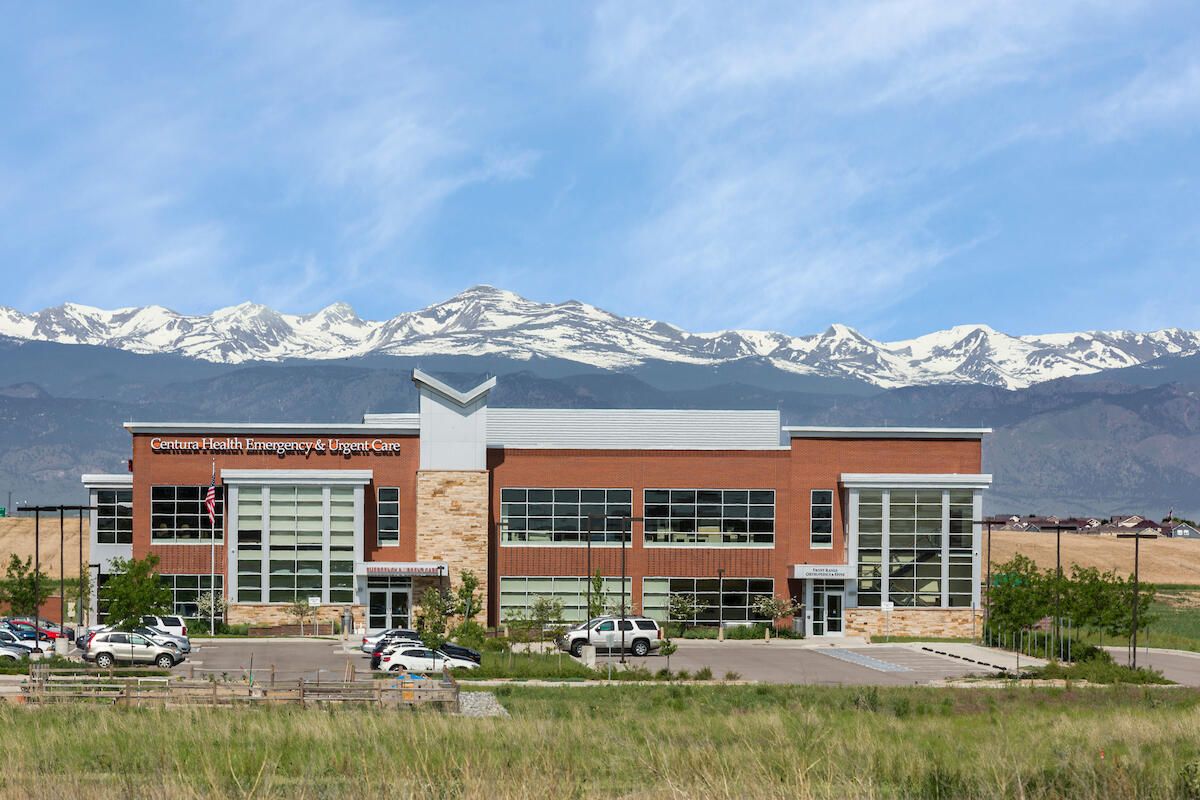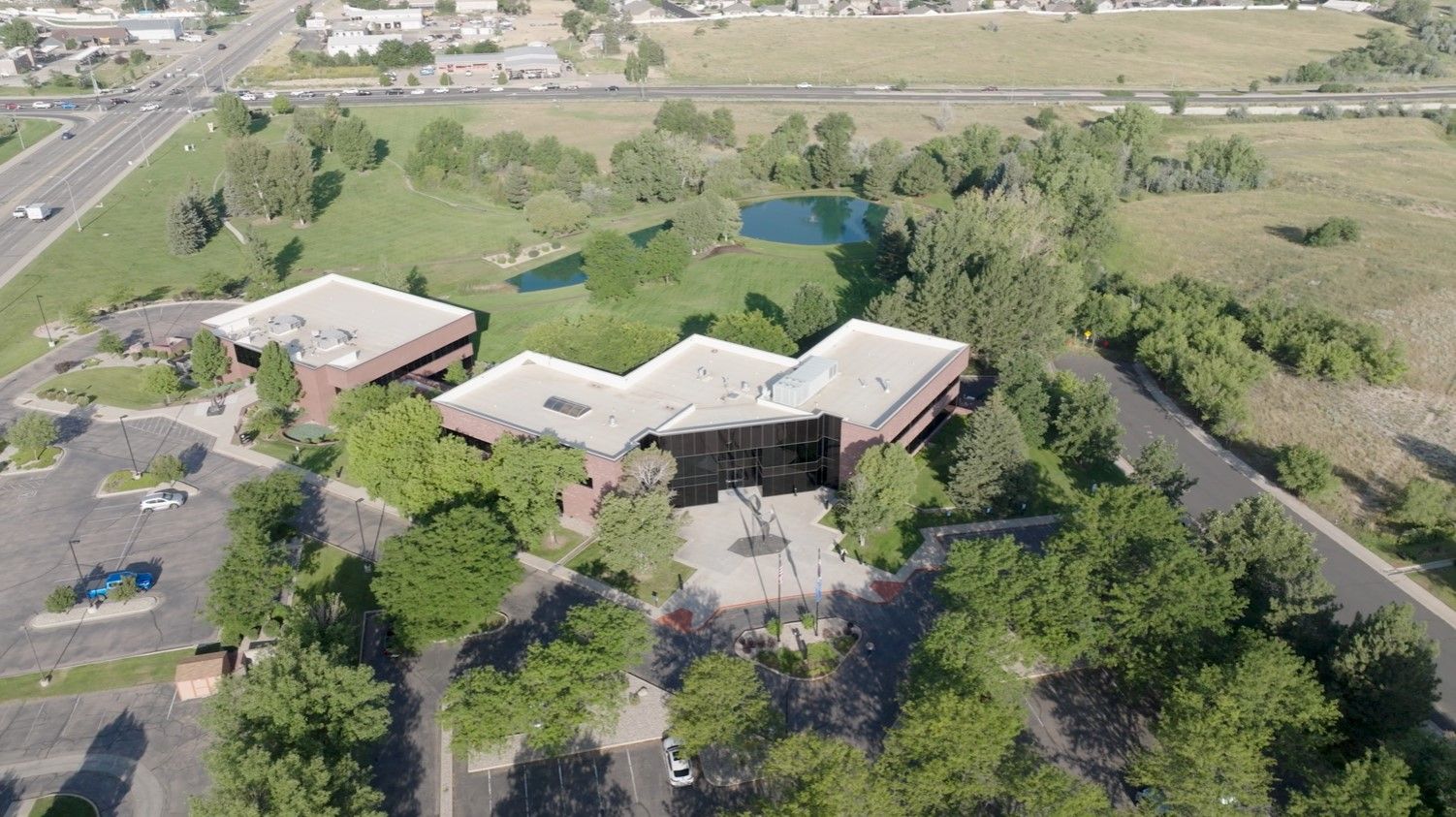UCHealth Greeley Hospital recaps a first pandemic-stricken year

GREELEY— When the first patient walked into UCHealth’s brand new Greeley Hospital just over a year ago, hospital president Marilyn Schock wasn’t envisioning her hospital the way it is today.
A little more than halfway into its maiden year, the hospital had to pivot from normal health-care operations and care for 160 patients struck by COVID-19 in one of the state’s hotspot counties.
UCHealth Greeley Hospital marked its one-year anniversary this week, and while celebrations have been muted by the continuing threat of the pandemic across Colorado and the U.S., Schock is still optimistic for the medical facility’s second year.
SPONSORED CONTENT
A flagship in a growing city
UCHealth already had a few clinics and a freestanding emergency room in Greeley before setting its sights on a new hospital, but it couldn’t perform certain specific procedures in those clinics that are normally done in larger medical facilities.
When the health-care system broke ground on the $200 million project, the advantage was two-fold: Its patients didn’t have to drive out of their city for more advanced care, and it took pressure off of Poudre Valley Hospital in Fort Collins and Loveland’s Medical Center of the Rockies.
“(Medical Center of the Rockies) was getting so busy that it needed to either expand there, or we needed to do something, so we expanded here,” she said.
That, combined with Greeley being among the fastest-growing cities along the Front Range, provided ample incentive to build a flagship location.
On July 3 last year, the first patients came into the hospital. Since then, 557 babies were born, 22,062 emergency room visits were handled and the staff grew from about 400 to 565 today.
It also introduced new services to the city, including a 24/7 pharmacy that could cater to night-shift workers in the area.
Then, in early March, the coronavirus first appeared in Colorado and upended everything about life in the hospital.
Shifting to COVID response and the “darkest days”

Schock said the region’s health-care providers organized as a group to respond to the virus, including UCHealth, its smaller area providers and Banner Health’s North Colorado Medical Center. They began working with city and county officials on coordinating care resources.
She said that collaboration, along with the countless hours of work from the hospital’s staff, have saved numerous lives. But at times, it seemed like wave after wave of new COVID patients were creating a never-ending onslaught for the hospital and its providers.
“That’s a piece that was really tough, when it didn’t seem like the numbers were ever going to stop, the emergency department was busy, the numbers were coming in and those patients were coming in for care,” she said. “It wasn’t just here; it was all around the country. But we particularly felt a lot of that here.”
Weld County has had some of the largest caseloads of COVID per capita among Colorado’s counties. It is home to a large number of major meat-packing plants — buildings that are kept cold, lack outdoor ventilation and are required to stay operating under a presidential order.
Those variables combined into a perfect environment for coronavirus to spread. Beef producer JBS alone has had three separate COVID-19 outbreaks in its corporate office, packing plant and among its summer internship program in recent months, according to the Colorado Department of Public Health and Environment.
In late April, Weld County’s Board of Commissioners said all businesses in the county could reopen with precautionary measures, defying the state’s planned schedule to wind down stricter stay-at-home orders by allowing certain types of firms to reopen based on their risk of spreading the virus. A known total of 298 people contracted the virus from the packing plant outbreaks and seven have died. The majority of those cases and fatalities affected workers inside the plant.
As of Thursday’s data from state health officials, Weld County has 2,937 confirmed cases and 138 deaths from COVID in an estimated population of 324,000 people.
For comparison, El Paso County at 720,000 people has more than double the population of Weld but has 2,804 cases and 110 deaths.
Schock said the hospital’s focus remained, and still remains, on encouraging nearby residents to continue washing their hands, staying six feet apart and wearing masks in public, all things known to help control the spread of the virus.
A change to the business model
Health care across the country faces dueling crises due to the pandemic.
On one hand, medical staff try to care for intensive care patients who have a highly contagious disease, and in many parts of the country do not have the protective gear they need.
On the other, the shutdown of elective procedures in hospitals in Colorado and elsewhere cut off lucrative revenue sources that hospitals have relied on to offset the cost of critical procedures that provide less return. That includes COVID-19 care.
UCHealth previously said it lost $170 million in revenue during March and April alone due to the cost of reworking its hospitals for virus care and stopping elective procedures.
That, combined with studies expecting that more than 563,000 Coloradans will this year join Medicaid, a payer that almost always reimburses less than private insurance.
Locally, the hospital is slowly restarting non-emergency procedures for patients who held off on non-critical care for months, and increasing the amount of “urgent procedures,” or care that comes soon after a patient is stabilized from a life-threatening ailment. Visitor restrictions at the hospital have also loosened up slightly.
Schock has described the virus as “somewhat devastating” to the financial health of health-care systems across the country. But, she said health systems are implementing new strategies to cope with that at break-neck speeds.
“In the world of health care, things that might have taken us four months were taking us four hours during all of this. We were making decisions so quickly, and that’s some of the pieces that we’ll continue to have to do,” she said.
No return to “normal”
The Greeley hospital is past the initial peak of intensive-care patients that Colorado saw earlier this spring. As of Thursday, Greeley Hospital had three patients under care for COVID, and there have been days over the past several weeks where there weren’t any COVID patients at all within the walls of the hospital.
Schock said there isn’t any time to rest on those laurels, especially with the fall and flu season approaching. The hospital is continuing to build a strategy for handling both the annual wave of relatively minor ailments and the potential for a spike in COVID cases at the same time.

But the present day isn’t producing a lull in cases either. Most public health officials have expressed alarm about the speed at which several states reopened their economies and the corresponding spike in cases, notably in Georgia, Texas, Arizona and Florida. While Colorado’s phased reopening of social and economic life hasn’t caused a similar surge, cases are up across the state.
Many of the reopenings around the country are in response to the crippling economic effects of putting the free flow of commerce on ice, but also from a public that is antsy after being asked to stay in their homes for much of the spring.
That worries Schock, who believes that American society will have to learn to live with the virus for the next several months before a vaccine or a cure can be widely deployed, and will need to adapt to the world in a post-pandemic future.
“People talk about a new normal, but there’s nothing normal about this and there will never be anything normal from what we knew before. It’s a new reality,” she said. “…I think we have to have the strength to be able to say I understand you don’t want to put a mask on, but we know how it protects, that’s the piece that we have to take a step back and say this is how you control the spread.”
But when asked what was her biggest worry for the hospital in its second year of operation, Schock said she doesn’t have a lot of specifics.
Even in the midst of a pandemic that has claimed the lives of more than 135,000 Americans, brought the world’s economy to its knees and thrown any sense of surety out the window, UCHealth Greeley is soon to add three new intensive-care beds and launch new outpatient procedure options this year.
“I don’t have a lot of fear,” she said. “I think it’s, how do we continue to charge this head on and make sure that it’s a viable business. And I think that’s where a lot of health care is, because the changes, we can’t even predict right now.”
© 2020 BizWest Media LLC
GREELEY— When the first patient walked into UCHealth’s brand new Greeley Hospital just over a year ago, hospital president Marilyn Schock wasn’t envisioning her hospital the way it is today.
A little more than halfway into its maiden year, the hospital had to pivot from normal health-care operations and care for 160 patients struck by COVID-19 in one of the state’s hotspot counties.
UCHealth Greeley Hospital marked its one-year anniversary this week, and while celebrations have been muted by the continuing threat of the pandemic across Colorado and the U.S., Schock is still optimistic for the medical facility’s…
THIS ARTICLE IS FOR SUBSCRIBERS ONLY
Continue reading for less than $3 per week!
Get a month of award-winning local business news, trends and insights
Access award-winning content today!




